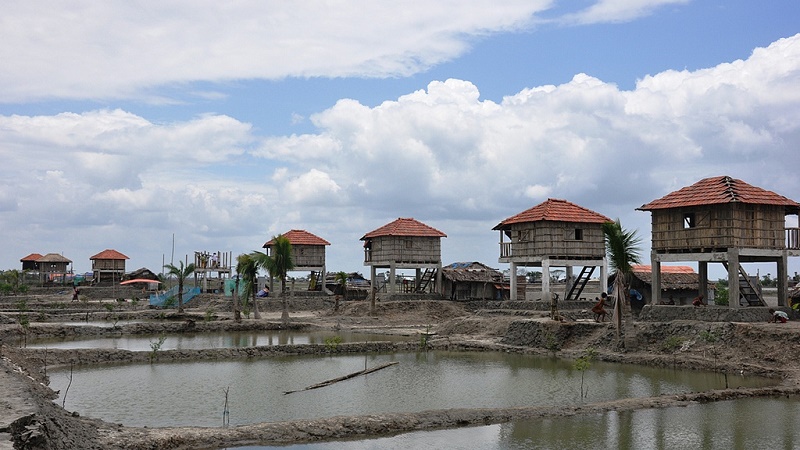Bangladesh, Ethiopia and Costa Rica are among 47 countries on the front line of global warming impacts that “will strive to lead” the transition to a green economy.
At UN climate talks in Marrakech, the Climate Vulnerable Forum set out an intention to go 100% renewable and carbon neutral. Members promised to update their national climate plans and produce mid-century strategies before 2020, in line with the aspirational 1.5C global warming limit agreed last year in Paris.
“The impact climate change has brought on us is very high and we have come here to make sure we have a say in our common future,” said forum chair Gemedo Dalle, environment minister of Ethiopia.
Collectively responsible for greenhouse gas emissions equivalent to Russia, members of the informal grouping have huge latent demand for energy.
Low-lying Bangladesh, while already suffering from rising sea levels and flooding, is planning more than 20 coal power plants to meet the needs of its 157 million people. This path of development was “suicide”, US secretary of state John Kerry said in a speech to the conference on Wednesday.
The communique stressed that climate change endangers development and peace, calling for support to take a greener path.
“We shouldn’t see it as a burden, but an opportunity,” said Saleemul Huq, Bangladeshi adviser to the forum. “Climate vulnerable countries can seize those opportunities.”
Climate Vulnerable Forum – Marrakech Communique by Megan Darby on Scribd
The Forum was a driving force for including 1.5C in the Paris Agreement, as well as the more widely accepted 2C goal.
Scientists say the chances of holding global warming to that lower threshold are vanishingly small, more than ever now a climate sceptic is taking charge of the world’s second largest emitter. Still, those who will be most affected by warming are not abandoning hope.
“This level of ambition and this vision is needed now more than ever,” said UN climate chief Patricia Espinosa, speaking at the forum meeting. “We welcome these decisions adopted by the members of the Climate Vulnerable Forum and we assure you of our support for the implementation of this vision.”
Report: Paris climate target slips away as Donald Trump rises
By declaring their intentions, the poorer parties to the UN climate talks aim to shame developed countries into stepping up their efforts. All have been invited to submit more ambitious targets by 2020, but it is not clear how that fits into the political cycles of the EU, US and other rich nations.
“It’s sad that it is the countries suffering first and worst from climate change that need to go furthest and fastest to show the world what needs to be done,” said Mohamed Adow, climate lead at Christian Aid. “But thank heavens they have done. Now it’s up to other nations to follow their lead.”
Climate bigwigs were quick to shower praise on the show of commitment.
“These ambitious and inspiring commitments show the path forward for others and give us all renewed optimism that we are going to meet the challenge before us and meet it in time,” said former US vice president Al Gore.
EU climate commissioner Miguel Arias Cañete said: “These countries are already living the terrifying reality of climate change today and their very existence is on the line. The EU stands with them and their commitment to greater ambition in the years ahead.”
Espinosa’s predecessor Christiana Figueres, who steered UN climate talks towards the Paris Agreement, sounded a typically optimistic note: “Our goal must be to bend the curve of emissions by 2020 in order to limit temperature rise to 1.5C and enable an orderly and just transition. For this we must accelerate the shift of capital and promote radical collaboration among all stakeholders. We can do it.”
